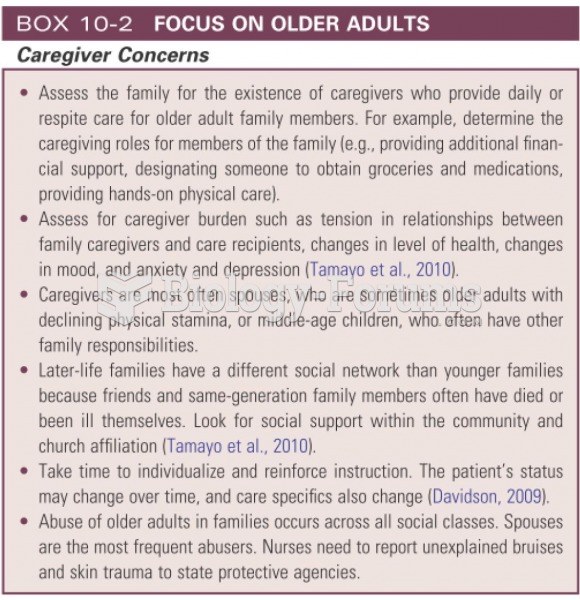Answer to Question 1
In general, a well- planned vegetarian diet can support a healthy pregnancy and successful lactation if it provides adequate energy and contains a wide variety of legumes, whole grains, nuts, seeds, fruits, and vegetables. Many vegetarian women are well nourished, with nutrient intakes from diet alone exceeding the RDA for most vitamins and minerals except iron, which is low for most women. In contrast, vegan women who restrict themselves to an exclusively plant-based diet generally have low energy intakes and are underweight. For pregnant women, this can be a problem. Women with low prepregnancy weights and insufficient weight gains during pregnancy jeopardize a healthy pregnancy.
Vegan diets may require supplementation with vitamin B12, calcium, and vitamin D, or the addition of foods fortified with these nutrients. Infants may suffer spinal cord damage and develop severe psychomotor retardation due to a lack of vitamin B12 in the mother's diet during pregnancy. Breastfed infants of vegan mothers have been reported to develop vitamin B12 deficiency and severe movement disorders. Giving infants vitamin B12 supplements corrects the blood and neurological symptoms of the deficiency, as well as the structural abnormalities, but cognitive and language development delays may persist. A pregnant woman needs a regular source of vitamin B12fortified foods or a supplement that provides 2.6 micrograms daily.
Answer to Question 2
The enhanced work of pregnancy raises the woman's basal metabolic rate dramatically and demands extra energy. After the first trimester, energy needs of pregnant women are greater than those of nonpregnant womenan additional 340 kcalories per day during the second trimester and an extra 450 kcalories per day during the third trimester. A woman can easily get these added kcalories with nutrient-dense selections from the five food groups.
Ample carbohydrate (ideally, 175 grams or more per day and certainly no less than 135 grams) is necessary to fuel the fetal brain. Sufficient carbohydrate also ensures that the protein needed for growth will not be broken down and used to make glucose.
The protein RDA for pregnancy is an additional 25 grams per day higher than for nonpregnant women. Pregnant women can easily meet their protein needs by selecting meats, milk products, and protein-containing plant foods such as legumes, whole grains, nuts, and seeds. Because use of high-protein supplements during pregnancy may be harmful to the infant's development, it is discouraged unless medically prescribed and carefully monitored to treat fetal growth problems.
The high nutrient requirements of pregnancy leave little room in the diet for excess fat, but the essential long-chain polyunsaturated fatty acids are particularly important to the growth and development of the fetus. The brain is largely made of lipid material, and it depends heavily on the long-chain omega-3 and omega-6 fatty acids for its growth, function, and structure.







